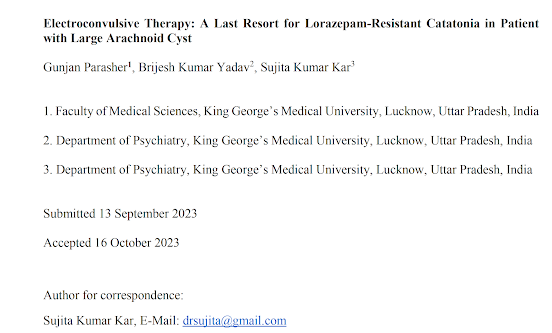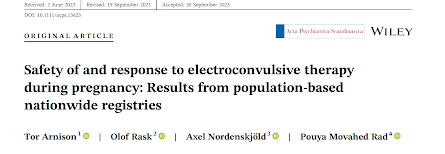The Serum Proteome After ECT: New Study From Sweden

Out on PubMed, from researchers in Sweden, is this study: Alterations in the Serum Proteome Following Electroconvulsive Therapy for a Major Depressive Episode: A Longitudinal Multicenter Study. Göteson A, Clements CC, Juréus A, Joas E, Holmén Larsson J, Karlsson R, Nordenskjöld A, Pålsson E, Landén M. Biol Psychiatry Glob Open Sci. 2022 Dec 12;3(4):884-892. doi: 10.1016/j.bpsgos.2022.11.005. eCollection 2023 Oct. PMID: 37881534 The abstract is copied below: Background: Electroconvulsive therapy (ECT) is the most effective treatment for severe depression, but the biological changes induced by ECT remain poorly understood. Methods: This study investigated alterations in blood serum proteins in 309 patients receiving ECT for a major depressive episode. We analyzed 201 proteins in samples collected at 3 time points (T): just before the first ECT treatment session (T0), within 30 minutes after the first ECT session (T1), and just before the sixth ECT session (T2). Results: Using statis...











